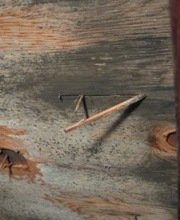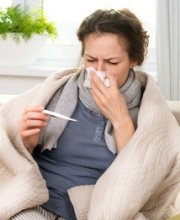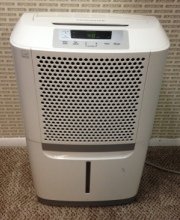Find a Mold Specialist Now
Click or Call, Toll-Free 24/7
Mold and pets
Most people are aware that exposure to household mold can have negative health affects in humans. Did you know it can also make your pets sick? Although we don’t hear much about it, and there has been less research on the effects of mold on pets, it makes sense if you think about it. The respiratory systems of cats and dogs are not that different than those of humans. The relatively small size of household pets (maybe nine pounds for a cat, maybe 80 pounds for a large dog, compared to 140 pounds for an adult human) also makes them more susceptible to even small amounts of mold, much like we know infants are.
Pets Affected by Mold
Nearly all household pets can be affected by exposure to mold, including:
- Cats (More about the effect of mold on cats)
- Dogs (More about the effect of mold on dogs)
- “Pocket pets,” like mice, rats, gerbils and hamsters
- Guinea pigs
- Rabbits
- Ferrets
- Birds
- Reptiles and amphibians (lizards, snakes, frogs, etc.)
Signs that Mold Is Making Your Pet Sick
Symptoms of mold-related illness in pets will vary depending on the type of pet, but may include one or more of the following:

- Eating less than usual
- Either drinking a lot less than usual or drinking a lot more than usual
- Lethargy (less active or less interested in playing than usual, sleeping more than usual)
- Scratching and/or licking himself
- Chewing on his feet
- Hair loss
- Sores or broken skin
- Labored breathing
- Wheezing sound when breathing
- Coughing
- Sneezing
- Runny nose
- Runny eyes
- Changes in behavior
Unfortunately, pets can’t tell us when they aren’t feeling well and it can be hard to tell when something is wrong. If your pet is acting odd in some way, check with your vet, especially if you are aware of a household mold problem. Ask your vet for more information about what to look for in your pet.
If You Think Mold Is Making Your Pet Sick
If you think mold is making your pet sick, see your vet as soon as possible. Let your vet know that you think mold may be causing your pet’s symptoms. Your pet may need steroids, antibiotics or other medications to treat the symptoms.
In addition to treating your pet for mold-related illness, you’ll need to have the mold thoroughly removed from your home in order to make the living environment safe for your pet, as well as for your family. Even with veterinary treatment, your pet is unlikely to recover if he continues to be exposed to mold.
Ask your vet if it is safe for your pet to be in your home until you can have the mold removed. You may need to board your pet at your vet’s office or elsewhere until the home is mold-free.
Even if your vet gives the OK for your pet to remain in the home until you can have the mold removed, it’s probably best to have him out of the home during the actual mold removal process. The process of removing mold stirs up a lot of mold spores, which are very light and very tiny and easily inhaled. Mold removal professionals take steps to minimize the spread of mold spores during the mold removal process, but your pet could end up being exposed to greater amounts of mold during the cleanup process, making his condition worse.
In addition, having strangers in the home can be stressful for pets, especially when those strangers wear protective gear and bring strange equipment with them. Uncaged pets may take the opportunity to try to slip out the door when people are going in and out. Your pet may be happier and safer spending a few days away from home while the mold is removed.
For More Information or Help with Mold Removal
We recommend consulting with an experienced mold removal professional, even if you plan to handle the cleanup yourself. Mold removal specialists often provide free in-home consultations, during which they will inspect your home to make sure you’ve located all areas of mold, advise you about the cleanup process, and answer any questions you may have. Ask about safety precautions during the cleanup process and how to protect your pets if they remain in the home during the cleanup. To find qualified mold removal professionals offering free home inspections and consultations in your areas, just follow the link.
Return From Mold And Pets To Home Page
Ref: Mold Advisor: Pets and Mold
Privacy Policy Terms and Conditions Accessibility Do Not Sell My Information Disclaimer Contact Us




